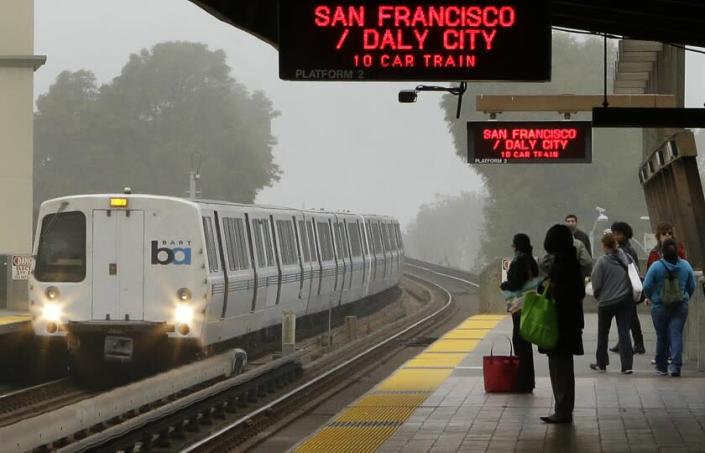
The Bay Area Rapid Transit agency may be required to void a $40-million construction management contract after an investigation revealed a potential conflict of interest between a manager who played a role in making and administering the contract and the firm to which it was awarded, the transit agency’s inspector general announced Friday.
Inspector General Harriet Richardson said she began the investigation after receiving evidence that the BART manager used to work for the construction management firm, and that the manager’s spouse and sibling still worked for the firm. Those allegations came to light during another investigation Richardson’s office is conducting, according to the report.
“The BART manager’s relationships create a potential financial interest in the contract, which is against the law,” Richardson said in a statement. California Government Code Section 1090 prohibits government employees from having a role in making contracts in which they have a financial interest.
In January, BART officials issued a stop-work order to San Francisco-based PGH Wong while it conducted the review, a move that observers called highly unusual. The firm has long provided engineering and consulting services to the BART system, including construction management services for multiple projects.
The move was made “out of an abundance of caution,” BART spokeswoman Anna Duckworth wrote Saturday in an email. BART has since reinstated the firm’s work on all agreements except the one that is the subject of the inspector general’s report, she said.
In a response appended to the report, BART said it had removed the manager from all projects pending further investigation and taken steps to strengthen its conflict-of-interest policies.
“Management worked with the General Counsel’s office and management is of the opinion that no financial interest was realized by the employee or the firm,” BART wrote in the response.
The manager clearly had a role in making several contracts with the firm, the inspector general’s report found. What is less clear is whether the manager had a financial interest in those contracts. The most compelling evidence to that effect is that the manager’s spouse received an annual profit-sharing distribution from the firm, and the firm’s contracts with BART likely contributed to at least some of those profits, the report found.
At the same time, some case law and Fair Political Practices Commission opinions could be interpreted to mean that does not rise to the level of having a financial interest in the contracts, the report stated. Other case law and attorney general opinions interpret the term broadly and state that certainty of financial gain isn’t necessary to create a conflict of interest, it noted.
“Interpreting Government Code § 1090 is a complex legal matter that must consider even a remote financial conflict,” Richardson said in a statement. “BART is best served by seeking outside counsel on the matter to determine next steps.”
If the manager is found to have had a financial interest in the contracts, BART should void the remaining $27 million in capacity on the $40-million contract, as well as $5.4 million in unpaid invoices on that and another contract with the firm, the report concluded. The contractor could also be required to repay portions of the contract that were federally funded, according to the report. The Federal Transit Administration has stricter conflict-of-interest rules that extend to immediate family members of those involved in awarding or administering contracts, the report noted.
Both the manager and the firm failed to disclose the potential conflict of interest as required by BART’s employee and contractor codes of conduct, according to the report. The manager also did not disclose the potential conflict on annual FPPC forms, it stated. But some of those requirements were not made clear by BART’s own policies, the report found.
“There are inconsistencies in the language in and between BART’s Contractor and Employee Codes of Conduct, and there is a lack of clear guidance and training for employees and a lack of clear guidance regarding conflict-of-interest disclosures for firms submitting contract proposals,” Richardson said in a statement.
In its response to the report, the transit agency said it was taking steps to review and update its policies and procedures to mitigate potential conflicts of interest, including by addressing inconsistent language and requiring employees to undergo training.
But it did not commit to seeking outside counsel to determine whether state law was violated and the contract should be voided.
“After an exhaustive review of the situation, management believes all agreements, work plans, and invoicing with this firm are fair and reasonable,” BART wrote in its response.
The Office of the Inspector General disagreed with the reasoning, saying that just because the agreements were fair does not mean they aligned with state law.
“The penalties for not voiding the contract could be even more punitive for the firm and BART if it is later confirmed that a violation of Government Code § 1090 did indeed occur,” the report stated. “We believe it is better to void the contract than to take that risk.”
This story originally appeared in Los Angeles Times.
